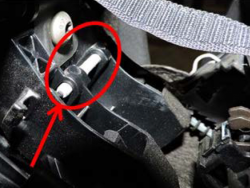
— Fiat Chrysler headrest lawsuits that went to trial turned in favor of Chrysler after juries ruled the automaker didn't have to pay hundreds of millions of dollars to vehicle owners.
According to both jury verdicts, Chrysler won't have to pay a cent to owners over alleged active head restraint defects.
Both headrest class action lawsuits claimed Chrysler allowed cheap plastic to be used in the head restraints provided by supplier Grammer.
A Chrysler headrest lawsuit in Massachusetts and another in Florida went to trial after FCA refused to settle the lawsuits, the typical course of action in vehicle class actions.
The lawsuits describe an active head restraint as a headrest used to help prevent a driver or passenger from whiplash in a rear-end crash.
The Chrysler active headrest has a padded front and padded back, and in a crash the front padding deploys forward to decrease the risk of whiplash. But the active head restraint class action lawsuits allege the headrest can deploy without warning, and without any rear-end collision.
According to the headrest lawsuits, the allegedly defective head restraints are installed in these FCA vehicles.
- 2010-2018 Dodge Journey
- 2010-2011 Dodge Nitro
- 2010-2012 Jeep Liberty
- 2010-2017 Jeep Patriot or Compass
- 2010-2012 Dodge Caliber
- 2010-2018 Dodge Caravan
- 2011-2018 Dodge Ram C/V
- 2011-2018 Dodge Durango
- 2011-2018 Jeep Grand Cherokee
- 2010-2014 Chrysler Sebring
- 2010-2014 Dodge Avenger
- 2011-2018 Chrysler Town & Country
- 2011-2018 Chrysler 200
- 2011-2018 Chrysler 300
The plaintiffs assert it can cost hundreds of dollars to fix a deployed Chrysler active headrest, and trying do-it-yourself repairs typically mean still visiting dealerships for repairs.
Chrysler Headrest Lawsuits — Jury Verdicts
In a Boston trial, the plaintiffs argued FCA should pay more than $120 million to vehicle owners, but Chrysler argued the active headrests may have deployed in some vehicles, but most of the owners never had any headrest problems during years of ownership.
The automaker also told the jury how the active head restraints were covered by a 10-year extended warranty to cover the cost if a headrest did deploy.
The jury ruled in favor of FCA when the returned verdict said Fiat Chrysler didn't have to pay a cent to owners and had not harmed vehicle owners.
A Florida headrest trial ended in a similar way when a Fort Lauderdale federal jury ruled FCA didn't have to pay damages over headrest deployments.
The Chrysler headrest lawsuit alleged FCA should pay about $56 million to replace the active head restraints. But as in the Boston trial, FCA told the jury the warranties had been extended for the headrests.
Though no damages were awarded, the jury did rule FCA violated the Florida Deceptive and Unfair Trade Practices Act.
The Chrysler headrest lawsuit trials are titled, Costa v. FCA and Nuwer v. FCA.




